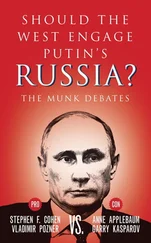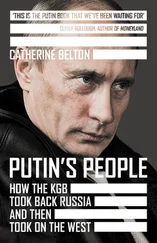The lectures on U.S. and British intelligence were the most riveting because this was the enemy you had to know before you could go up against him. There was some time for the firing range and martial arts during the daily exercise hour. Some recruits would spend time with a Soviet parachute division learning how to jump from planes, hand-to-hand combat, survival in the wilderness. One officer reports shooting a grand total of three cartridges during his training, and for many even that was a waste of time. Of course tradecraft—brush contact, dead drops, eluding surveillance, and the use of espionage high tech—was essential, but in the end espionage was a mind game. It was the art of seducing someone into betrayal.
The person in charge of training and evaluating Putin was Colonel Mikhail Frolov. “I taught the art of intelligence. What does intelligence mean? It’s the ability to come into contact with people, the ability to select the people you need, the ability to raise the questions that are of interest to our country and our leaders, the ability to be a psychologist, if you will.” [82] Ibid., p. 54.
Putin himself would later, in conversation with a friend, describe himself as a “specialist in human relations.” [83] Ibid., p. 44.
Putin had won Colonel Frolov’s interest and respect by appearing at a lecture in a three-piece suit on a ninety-degree day when even Frolov was wearing short sleeves. Frolov pointed him out as an example to the others: “Look at Comrade Platov, now!” [84] Ibid., p. 53.
On the basis of that and other incidents Frolov “decided to try him out in the role of division leader. At the Red Banner Institute, division leader was not just some sort of illustrious title. A lot depends on the division leader. You need organizational abilities, a certain degree of tact, and a businesslike manner. Putin had all of that.” [85] Ibid.
But there was a little more than that to being division leader. The main job of instructors like Frolov was writing the evaluations on which the students’ future depended. But Frolov’s own future depended on how accurate his characterizations proved. For that reason it never hurt to have a little extra inside information; providing it was one key task of the division leader and not one that would make him popular with his fellow students, any more than being held up as an example for wearing a suit on a scorching day.
Yuri Shvets, who would rise to major in the KGB and later author Washington Station: My Life as a KGB Spy in America , was also trained at the Andropov Red Banner Institute and says of Putin: “We had ‘uncles’ who wrote our references on graduation. They needed to know as much as possible and used ‘elders’ or the leaders of the groups, who reported to them. Vova [Putin] was a leader—a snitch. Everyone hated the leader.” [86] Jack, Inside Putin’s Russia , p. 58.
Putin’s kind words about collaborators and snitches in First Person —characterizing them as indispensable people working patriotically “for the interests of the state” [87] Putin, First Person, p. 40.
—may be both inadvertent sincerity and an ex post facto attempt to justify his own “snitching” as a group leader. In any case, though originally published in Russian newspapers, this section was not included in the Russian book version of First Person , because praising Soviet-era stoolies was still too sensitive an issue for many Russians.
Some of the students believed their dorm rooms were bugged, a KGB within the KGB.
Everything was a test and you never knew if you passed or failed. “You would be ordered to prepare a presentation on one topic and then the instructor would change the subject moments before you were supposed to make your presentation…. Would you panic? Would you become depressed? Did you have a sense of humor? If you were too serious, it was not good. If you were too carefree, it was not good. They applied pressure at all possible points and they were always totally critical. There was never any positive reinforcement. None.” [88] Earley, Comrade J , p. 54.
There were also the odd moments of diversion. Dale Carnegie’s How to Win Friends and Influence People was one of the most popular books in the institute library. And Vladimir Kuzichkin, author of Inside the KGB: My Life in Soviet Espionage , recalls: “It was from the James Bond films that we first learnt how the West saw Soviet intelligence officers. Bull necks, stupid faces, and solving all their problems with their fists and not their brains. That neither upset nor angered us. We were simply amused by it. ‘The more primitive you imagine us to be,’ we thought, ‘the worse for you.’” [89] Vladimir Kuzichkin, Inside the KGB (New York: Pantheon, 1990), p. 63.
In the end it was time for Frolov to write his evaluation of Putin. It was quite positive but included some negative characteristics as well—“he was somewhat withdrawn and uncommunicative. By the way, that could be considered both a negative and a positive trait. But I recall that I also cited a certain academic tendency among his negative aspects. I don’t mean that he was dry. No, he was sharp-witted and always ready with a quip.” [90] Putin, First Person, p. 55.
Perhaps most important for the long haul was the notation concerning Putin’s “lowered sense of danger.” It was a criticism Putin took very much to heart, saying: “I had to work on my sense of danger for a long time.” [91] Ibid., p. 37.
Despite these criticisms, Frolov recommended Putin for assignment. Putin would thank him fifteen years later by inviting Frolov to his inauguration as president in 2000.
In the end, a high-ranking commission would both examine the reports on a candidate and summon the candidate himself for an interview and, on that basis, decide what use the KGB would make of him. In Putin’s case that decision was: FOREIGN INTELLIGENCE. EAST GERMANY, DRESDEN.
Of course life in East Germany was very different from life in Russia. The streets were clean.
—LYUDMILA PUTINA (PUTIN’S WIFE)
[92] Putin, First Person , p. 75.
Once known as the Florence of the Elba, rococo Dresden was firebombed by British and American planes in February 1945 even though the city presented very little value as a military target. The real motivations were revenge for the German bombing of civilian populations in England and also to hasten the end of the war, which in the event was less than three months away. Statistics on casualties vary wildly, from 150,000 (higher than the death toll of Hiroshima) to revisionist lows of around 35,000, based on the contention that the Nazis themselves had inflated the original figures to demonstrate that they were not the only ones to inflict savageries on the innocent. Some of those victims had an odd afterlife, as noted by the legendary chief of Stasi foreign intelligence, Markus Wolf: “We had the advantage of being able, for example, to use the identities of people killed in the Dresden bombings as covers for the agents we settled in the West.” [93] Markus Wolf, Man Without a Face (New York: Public Affairs, 1999), p. 121.
In any case, it is not statistics or posthumous exploitation that gives the true feel of the carnage but a line from Slaughterhouse Five by Kurt Vonnegut, who was there during the firestorm and wrote that there “must be tons of human bone meal in the ground.” [94] Kurt Vonnegurt, Slaughterhouse Five (New York: Dial, 1969), p. 1.
A bit of a backwater, Dresden was not one of the most coveted foreign postings, but plummy enough considering that by 1984 KGB salaries there were supplemented by $100 a month in hard currency and East German stores offered such exotic luxuries as bananas. Western European cities might be more attractive, but Dresden was East Germany’s third-largest city, and any German city was important. “As the Soviet Union’s westernmost satellite, East Germany was the front line in the battle against capitalism. The protection of Soviet security and military forces stationed in East Germany against defection and Western espionage was as vital as the suppression of any anticommunist stirrings among the populace,” writes John O. Koehler in Stasi: The Untold Story of the East German Secret Police . [95] John Koehler, Stasi : The Untold Story of the East German Secret Police (Boulder, Colo.: Westview Press, 1999), p. 73.
Читать дальше
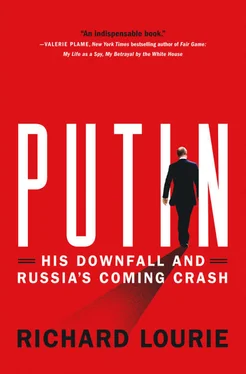

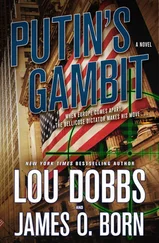
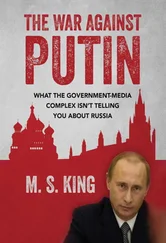
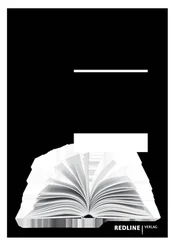
![Stephan Orth - Behind Putin's Curtain - Friendships and Misadventures Inside Russia [aka Couchsurfing in Russia]](/books/415210/stephan-orth-behind-putin-s-curtain-friendships-a-thumb.webp)

